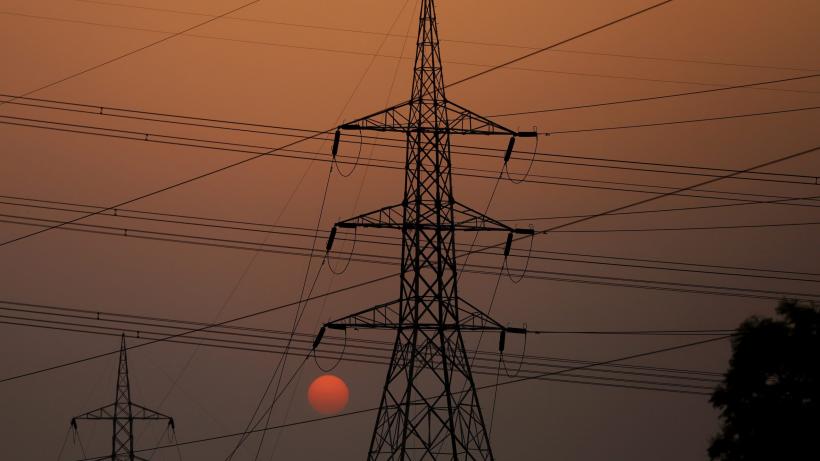
Energy and environment: Theft, benefits, misallocation, and collusion challenges in developing countries
The IGC co-hosted the LSE Environment Week from 19-23 September and invited researchers to present their works in progress on environment and energy challenges in developing countries.
Energy access is key for economic development with electricity being one the most common forms of energy driving productivity. Yet, its access in developing countries is mired in challenges ranging from theft and lack of payment, threats on environmental erosion, market collusion raising prices, and little improvement in rural development metrics. Developing countries spend large sums of money on improving energy access and it is arguably one of the central development challenges they face. Below are summaries of some of the research presented exploring the accompanying challenges.
Electricity theft and strategic enforcement (Paying for Power)
Fiona Burlig and Anant Sudarshan
Energy is necessary for growth, but developing countries struggle to reliably provide electricity. This is partly because consumers often don’t pay their bills, leaving the utilities company with losses. Fiona Burlig and Anant Sudarshan run a multi-armed experiment in an India state to test various enforcement mechanisms for getting consumers to comply and pay their electricity bills. Being unable to recover their costs, these electricity utilities are under-staffed and under-resourced, and a huge drain on the state exchequer -- the arrears often surpassing the entire budgets of other ministries. Through an RCT in Madhya Pradesh, one of India’s largest and poorest states, they explore the efficacy of 1) SMS reminders, 2) SMS reminders with a social comparison nudge, 3) mailed formal notice, and 4) electricity disconnection following a mailed notice. So far, their findings have revealed that electricity disconnection and mailed notices are significantly successful in getting consumers to pay their bills in the short-run, with SMS reminders and accompanying social comparison nudge being largely ineffective.
The heterogeneous effects of rural electrification: Evidence from Zambia
T. Figueiredo Walter and Niclas Moneke
Most modern technologies run on electricity, underpinning a strong correlation with economic development. In spite of its widely studied transformative potential, recent, rigorous microeconomic research finds almost no effect of electrification on a wide array of development outcomes. T. Figueiredo Walter and Niclas Moneke investigate whether rural electrification has any impact on economic development, and what is needed for rural electrification to be successful in spurring development. Their study is set in rural Zambia which has been undergoing a large-scale electricity roll-out since the mid-2000s. They present electrified local schools and health facilities as novel means of tracking electrification. However, like most recent studies, they too find near negligible effect of rural electrification on economic development. They confirm that location size has a role to play in the success of electrification in terms of its impact, and further find a new determinant of electricity’s effect -- the presence of at least one non-residential building in commercial use before electrification.
Electricity market design and market-based environmental policy in India
Shefali Khanna
How do market-based environmental policy instruments perform in non-market-based electricity systems? In India, electricity is transacted primarily through long-term bilateral contracts and state-owned distribution utilities self-schedule contracted power plants to meet their demand. The absence of a centralised and dynamic market-based economic dispatch mechanism generates short-run misallocation in electricity dispatch and distorts long-run investment decisions, such as the incentive to invest in flexible generation capacity and energy storage to complement renewable-based capacity. Using detailed data on power plant operations and the network of long-term bilateral contracts, Shefali Khanna finds that the demand for electricity from coal-fired power plants with a higher share of capacity allocated under long-term contract(s) is less sensitive to changes in coal prices, implying that the existing market design could erode some of the environmental benefits of carbon pricing.
The value of relational collusive arrangements in the Colombian electricity market
Rocco Macchiavello, Miguel Espinosa, and Carlos Suarez
Oligopolies can distort the market by raising prices for their collective benefit at the expense of the broader consumer wellbeing. Rocco Macchiavello, Miguel Espinosa, and Carlos Suarez explore this in the context of the Colombia electricity market where they uncover an informal collusion among a subset of firms. For this, they leverage a market reform in Colombia that delayed the disclosure of information about the bids made to the industry regulator to the other market participants. Employing an event study design, they find an immediate collapse in the bids made by firms, right after the reform was announced. On further analysis, they reveal that the reform reduced market information transparency, making the existing cartel unsustainable and prompting some firms to pull out of the biddings. Early results suggests that the cartel had led the substantial increase in electricity prices with the average consumer paying 4% more for electricity.
The health benefits of solar power generation: Evidence from Chile
Nathaly Rivera, Cristobal Ruiz-Tagle, and Elisheba Spiller
Renewable energy can yield social benefits through local air quality improvements and their subsequent effects on human health. Nathaly Rivera, Cristobal Ruiz-Tagle, and Elisheba Spiller estimate some of these benefits using data gathered during the rapid adoption of large-scale solar power generation in Chile over the last decade. Relying on exogenous variation from incremental solar generation capacity over time, they find that solar energy displaces fossil fuel generation, primarily coal-fired generation, and curtails hospital admissions, particularly those due to lower respiratory diseases. These effects are noted mostly in cities downwind of displaced fossil fuel generation and are present across the most vulnerable age groups. Their results document the existence of an additional channel through which renewable energy can increase social welfare.
To learn more about the environmental challenges facing the world, visit LSE Environment Week.

